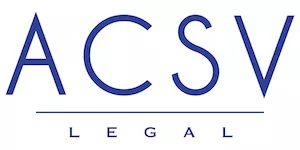- in European Union
- within Government, Public Sector and Real Estate and Construction topic(s)
The draft decree provides details on the environmental permits, it sets out environmental criteria for investment project classification and requires organisations or individuals to obtain a liability insurance in specific sectors and industries. Finally, incentives and supporting policies in environmental protection are included.
LEGAL UPDATE
In late July 2021, the Ministry of Natural Resources and Environment (MONRE) released the Draft Decree implementing Law No. 72/2020/QH14 on Environmental Protection (Draft Decree) for public comments.
The Draft Decree provides guidance on Law No. 72/2020/QH14 on Environmental Protection (LOEP) and introduces various concepts and procedures to improve environmental protection mechanisms among entities and individuals in Vietnam.
This update contains a summary of the Draft Decree's key points.
1. Environmental Permit
The Draft Decree outlines details on the LOEP's new concept of environmental permits, which will govern the environmental implications of specific investment projects. Specifically, the document focuses on the administrative procedure of obtaining, adjusting, and renewing such environmental permits. It also specifies the order and methods for their revocation, which may come as a consequence of violations of environmental protection laws.
2. Environmental Criteria for Investment Project Classification
Following the environmental criteria categories stated in Article 28(1) of the LOEP, the Draft Decree sets out the details for each category to ease compliance and increase consistency between the LOEP and other legal instruments.
When classifying investment projects under these factors, authorities are advised to consider the issues set out hereafter.
2.1 Scale and Capacity of the Investment Project
The assessment of the project scale will be guided by the laws on public investment and construction. Project capacity will be grouped into three slots: large, medium, or small. This classification will factor in the contents of the investment proposal, feasibility study reports, economic - technical reports, and other relevant documents of the project.
2.2 Risk of Environmental Pollution
Whenever in scope, the new law evaluates project-specific risks of environmental pollution. The Draft Decree also explicitly defines manufacturing, business, or service activities that the regulator deems hazardous for the environment (Schedule 6 of the Draft Decree).
2.3 Area Used
The size and topography of the land used for a project will be classified (e.g. including a water surface area, marine use area, etc.) and governed by the laws on natural resources, marine and island environment, and other relevant legal documents.
2.4 Natural Resources Exploitation
Another factor that comes into play in the Draft Decree's project evaluation schedule is the envisaged exploitation scale. It will be classified and governed by the competent authorities regarding the guiding laws on water resources and minerals.
2.5 Sensitive Environmental Factors
Additionally, the new Draft Decree makes an effort to expand on the types and characteristics of investment projects that are associated with especially sensitive environmental impacts.
3. Extended Producers Responsibility for Packaging Waste
Vietnamese law now structures extended producer responsibility (EPR) as an environmental policy approach. It extends the producer's responsibility for a product to the waste stage of that product's life cycle. This approach is expected to increase compliance by endowing the governing authorities with additional implementation tools. According to the new EPR rules, manufacturers and importers within scope are now obliged to recycle their products or package them sustainably. The Draft Decree gives project operators a choice between:
- Recycling or arranging for the product recycling according to compulsory recycling rates and specifications via one of the following routes:
- Independently recycling in compliance with the recycling protocol;
- Engaging a qualified recycling service provider to carry out the recycling; or
- Authorising a qualified third-party not-for-profit organisation to carry out the recycling.
- Making a financial contribution to the Vietnam Environmental Protection Fund under the specific calculating formula prescribed in the Draft Decree.
For more detailed information on the latest EPR regulations, please see our legal update Draft Decree Guiding Extended Producer Responsibility.
4. Liability Insurance against Environmental Damage
Further to the LOEP, the Draft Decree requires that organisations or individuals obtain liability insurance against environmental damage when engaging in specific business activities considered high-risk operations. Some notable business activities in scope of this obligatory liability insurance are:
- Oil and gas activities including searching, exploration, field development, and extraction of oil and gas;
- Manufacturing and selling of chemical, petroleum;
- Manufacturing of batteries with the capacity of at least 300,000 KWh per year or at least 600 tons of products per year; or
- Transportation and processing of hazardous waste.
5. Incentives and Supporting Policies in Environmental Protection
5.1 Scope
The Draft Decree also incentivises projects operating in the environmental protection sector. According to Schedule 75 of the Draft Decree, the following investment and business activities are eligible for environmental protection incentives and other supporting policies:
- Collecting, processing, recycling, or reusing waste;
- Processing of domestic wastewater;
- Producing of renewable energy; and
- Manufacturing of transportation using renewable energy.
5.2 Forms of Incentives and Supporting Policies
During operation, eligible organisations or individuals may be entitled to specific incentives and supporting policies prescribed in the Draft Decree and relevant legal documents, such as:
- Supporting policies on the infrastructure construction;
- Incentives on land rent exemption or deduction;
- Incentives on loan interest rates for investment capital;
- Price supporting policies for services, products relating to environmental protection;
- Supporting policies on Green Public Procurement; or
- Supporting policies on services, product advertisements pertaining to environmental protection.
6. Conclusion
Laws like the updated LOEP and similar regulations provide tangible evidence that environmental protection is becoming a part of Vietnam's general consciousness. The same trend has bolstered the rapid growth of Vietnam's renewable energy sector in recent years. With new regulations passed in this spirit, the local lawmaker is starting to hold businesses accountable for their environmental footprints, plan sustainably and clean up their messes after operations conclude.
Investors and enterprises operating in Vietnam are required and encouraged to take further steps to assist the Vietnamese government in preserving the environment to accommodate this development.
The content of this article is intended to provide a general guide to the subject matter. Specialist advice should be sought about your specific circumstances.





